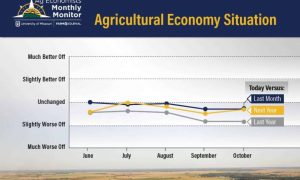
These changes are forcing dairies to scale up to remain competitive, working with suppliers, finding labor, and finding a market for the milk. he changes are also coming from within as many dairies transition the business to the next generation.
These changes are profound, and change is hard. Not every dairy will make the transition to the new dairy economy. While sad, this is not new, as the number of dairy farms has been shrinking for decades.
So how do we get better at change? How do we make change easier for ourselves and our teams?
It’s easy to slap a label on a person when they resist change. They are greedy, old-fashioned, unintelligent, want their way, etc. Are these labels always true?
We previously we discussed the first level of resistance, “I don’t like it.” There are two more levels of resistance that you may encounter within your team or maybe yourself: “I don’t understand it” and “I don’t trust you”

(Canva)
“I Don’t Understand It”
This resistance is an intellectual response that is easy to fix. Often it means people lack information, training, or exposure to the big picture. Organized meetings, researched facts, or training will cure this resistance. For example, you want to change the ration for your dairy herd. Your partners resist the idea. They say things like “Why should we change something that is working just fine?” “What will this do to our feed costs?” Often getting facts out and walking through how you arrived at your reasoning is enough to overcome this resistance. Slowing things down to get the unbiased facts correct, building awareness of the problem, and taking time to reason together will fix this resistance.
“I Don’t Trust You”
It’s possible they either don’t like you personally, trust you as a leader or trust your motives. Maybe they have been burned in the past and are wary of change. They may have worked at another farm where the owners or managers weren’t liked or trusted. Or, maybe as a leader, you have burned bridges.
Whatever the reason, this level is tough but rarely impossible to fix IF you are genuine, transparent, and put in the time to build relationships.
Start with a self-examination of how you may have contributed to the problem. Look for clues from the other party. A real clue in determining if someone is resisting at this level is if their reactions are way out of the ordinary for what you are asking them to change. When people feel threatened by change, a lack of trust, or not liking someone; they will often lash out, freeze up and do nothing, or flee from the situation—fight, freeze, or flight.
Building trust with open discussions, hearing the other person out, not rushing them, and asking questions to understand (not change) their mind builds trust. Often just asking opinions and getting feedback before implementing change is all it takes to get everyone behind it. The more emotionally charged conversation and the higher the stakes, it’s better to use a neutral third party. Transition planning or major strategic planning, are examples of high-stakes events that benefit from an outside facilitator.
Change is hard, but we live and work in an industry undergoing massive changes. Just as in every major historical upheaval in agriculture, some will survive and come out the other side stronger. Sadly, others will not survive. How dairies and leaders manage change makes a big difference.






















